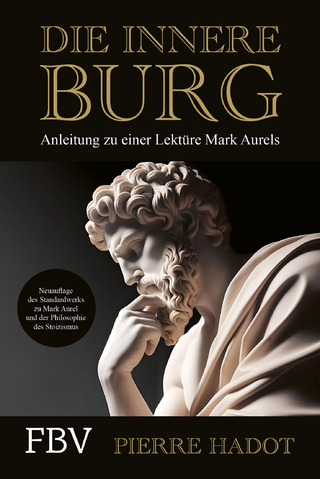
The Aporetic Tradition in Ancient Philosophy
Cambridge University Press (Verlag)
978-1-107-52663-1 (ISBN)
Ancient philosophers from an otherwise diverse range of traditions were connected by their shared use of aporia - translated as puzzlement rooted in conflicts of reasons - as a core tool in philosophical enquiry. The essays in this volume provide the first comprehensive study of aporetic methodology among numerous major figures and influential schools, including the Presocratics, Plato, Aristotle, Plutarch, Alexander of Aphrodisias, Academic sceptics, Pyrrhonian sceptics, Plotinus and Damascius. They explore the differences and similarities in these philosophers' approaches to the source, structure, and aim of aporia, their views on its function and value, and ideas about the proper means of generating such a state among thinkers who were often otherwise opposed in their overall philosophical orientation. Discussing issues of method, dialectic, and knowledge, the volume will appeal to those interested in ancient philosophy and in philosophical enquiry more generally.
George Karamanolis is Associate Professor of Philosophy at the University of Vienna. His publications include Plato and Aristotle in Agreement? Platonists on Aristotle from Antiochus to Porphyry (2006) and The Philosophy of Early Christianity (2013). Vasilis Politis is Associate Professor of Philosophy at Trinity College Dublin. He is the author of The Structure of Enquiry in Plato's Early Dialogues (Cambridge, 2015) as well as of numerous journal articles on philosophical enquiry.
Introduction George Karamanolis and Vasilis Politis; 1. Contradiction and aporia in early Greek philosophy John Palmer; 2. Socrates and the benefits of puzzlement Jan Szaif; 3. Aporia and sceptical argument in Plato's early dialogues Vasilis Politis; 4. Aporia in Plato's Parmenides Verity Harte; 5. Aporia in Plato's Theaetetus and Sophist Lesley Brown; 6. Aporia and dialectical method in Aristotle Christof Rapp; 7. Aporia in Aristotle's Metaphysics Beta Friedemann Buddensiek; 8. Uses of aporiai in Aristotle's Generation of Animals Jessica Gelber; 9. Aporia and the New Academy James Allen; 10. Aporetic elements in Plutarch's philosophy John Dillon; 11. Aporia and enquiry in ancient Pyrrhonism Luca Castagnoli; 12. Aporia and exegesis: Alexander of Aphrodisias Inna Kupreeva; 13. The aporetic character of Plotinus' philosophy George Karamanolis; 14. Aporia and the limits of reason and of language in Damascius Damian Caluori.
| Erscheinungsdatum | 13.08.2019 |
|---|---|
| Zusatzinfo | 1 Line drawings, black and white |
| Verlagsort | Cambridge |
| Sprache | englisch |
| Maße | 150 x 229 mm |
| Gewicht | 350 g |
| Themenwelt | Geisteswissenschaften ► Philosophie ► Philosophie Altertum / Antike |
| ISBN-10 | 1-107-52663-9 / 1107526639 |
| ISBN-13 | 978-1-107-52663-1 / 9781107526631 |
| Zustand | Neuware |
| Informationen gemäß Produktsicherheitsverordnung (GPSR) | |
| Haben Sie eine Frage zum Produkt? |
aus dem Bereich


